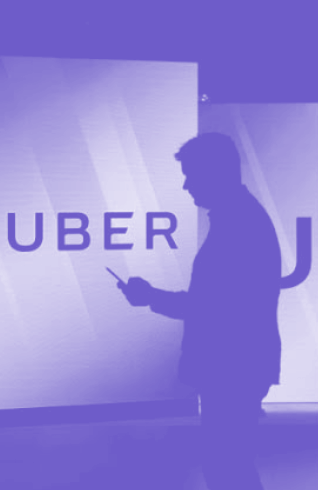Uber arrangements uncovered
 Uber Australia is disputing an $81.5 million tax bill, while sending much of its money to the Netherlands.
Uber Australia is disputing an $81.5 million tax bill, while sending much of its money to the Netherlands.
Uber sends about 25 per cent of each transaction in Australia to Uber International Holding BV - its head company in the Netherlands. This company then pays Uber Australia a fee for providing service support in Australia.
“The Group has a cash pooling arrangement with Uber BV and all cash at bank is transferred to Uber BV at the end of every day,” Uber Australia’s 2020 accounts state.
The interest expenses for having money in this Dutch “cash pool” reached $5.5 million in 2020 and $9.5 million the year before.
Uber Australia reported more than $1 billion in revenue but just $7 million in profit after tax for the 2020 year, following the $906 million in revenue and $1.6 million in profit after tax in 2019.
Its accounts reveal that a $643 million “service fee paid to related companies” ate up over half of its total reported revenue.
It is not clear whether this service fee was paid to Uber BV or another related entity offshore.
Uber Australia’s accounts show that nearly $6 billion for a “collection on behalf by a related company” was largely offset by almost $5.3 billion in the form of a “payment on behalf by related companies”.
Uber Australia paid $17.3 million in corporate income tax in 2020, and continues to argue that it pays all taxes it owes in Australia.
However, analysts have spotted a payroll tax dispute with the New South Wales Government in its accounts too.
It appears that Revenue New South Wales issued a payroll tax audit against the company in 2018, and issued tax bills against the group totalling $81.5 million..
However, “the Group has filed an objection to each of the assessments”, the documents suggest.
“The group considers that payroll tax should have no application to arrangements with Driver Partners and has not remitted payroll tax on payments received by Driver Partners on this basis.”
Some critics see it as another example of Uber distancing itself from its drivers in order to make more money and reduce responsibility.
Uber does believe it will have to pay, because its drivers are not employees.
“The Group expects to get a response, and therefore certainty about the payroll tax position, before the next reporting date,” its accounts state.
“As of the date of the consolidated financial statements, management continues to believe that it will succeed in the appeal and thus it would not be liable for the assessed payroll tax amounts under dispute.
“The Group has not recognised a provision for this dispute on the basis that it is not probable that the Group will be liable for this obligation.”
Transport Workers Union (TWU) national secretary Michael Kaine says the NSW Government must pursue the funds it is owed.
“NSW taxpayers have joined rideshare drivers and delivery riders as the latest group Uber is prepared to rip off,” he told the ABC.
“Own government department ... says these are workers with rights.
“The erosion to the state's revenue base here is just one example of a downward spiral governments must address as a public policy priority.”
The Centre for International Corporate Tax Accountability and Research (CICTAR) says that “the direct transfer of revenue from around the world to the Netherlands leaves little, if any, taxable profits behind”.
“With a series of global restructures in 2019, Uber created an $8 billion Dutch tax shelter that, if unchecked, may eliminate tax liability on profits shifted to the Netherlands for decades to come,” CICTAR said in a submission to the Senate Select Committee on Job Security.
“The $8 billion Dutch tax shelter was created in 2019 when Uber transferred its intellectual property rights from Bermuda to the Netherlands.”








 Print
Print